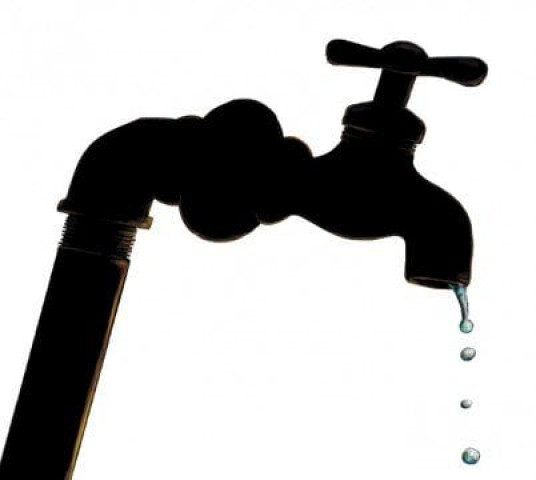Don’t drink up: Water, water everywhere, not a drop to drink
Water supply organisation advises Sukkur and Rohri residents against drinking tap water.

"We don’t have treatment plants - we provide water to the citizens after filtering it using traditional methods," NSUSC managing director Perwaiz Seehar. PHOTO: FILE
Owing to the dumping of poisonous chemicals in the River Indus, the North Sindh Urban Services Corporation (NSUSC) has advised residents of Sukkur and Rohri to not drink tap water.
The NSUSC, which is responsible for providing drinking water to the people of Sukkur and Rohri, warned citizens of the twin cities about the contamination in the water and advised them to not drink this water. They further advised that, this water should be properly filtered and boiled before consumption.
Fishermen add poisonous chemicals in the water ponds of the katcha areas in order to easily catch fish. This pond water eventually makes its way into the river, where its poisonous contents get mixed with the river’s fresh water, meaning that it has a harmful impact on both fish and humans.

According to the report of a private mineral water laboratory that tested it, the water being provided to the citizens is carrying more than the recommended amounts of total dissolved solids and nitrate and therefore is not fit for human consumption. A copy of this report is available with The Express Tribune.
The NSUSC has failed to treat water properly forcing the residents to fetch drinking water from hand pumps installed in low-lying areas of the city. Those who can afford it are purchasing mineral water while a majority of the poor population continues to consume dirty water, leading to an abrupt rise in gastroenteritis. According to NSUSC sources, water samples have been sent for further tests but the results have yet to be received.
Departmental merry-go-round
NSUSC managing director Perwaiz Seehar threw the onus of the situation upon the irrigation department, saying that the River Indus is a reservoir and everybody sucks water from it. “Our duty was to inform the people about the contamination in the water and now it’s up to them to adopt precautionary measures,” he said. “We don’t have treatment plants - we provide water to the citizens after filtering it using the traditional method of passing it through a sand wall and alum.” However, Seehar did claim that a treatment plant will soon be installed. “Hopefully the problem will be resolved once and for all after that.”
Sukkur Barrage executive engineer Mohammad Murad Mahar told The Express Tribune that their job is to regulate the water through different canals. According to him, it is the duty of the fisheries department to keep an eye out for the fishermen who dump these chemicals into the water and to ensure that it is stopped immediately. “The NSUSC is responsible for providing water and they should test it before supplying it to citizens.”
Fisheries department Sukkur deputy director Ghulam Mustafa Gopang informed The Express Tribune that two different fishing licences are issued. “One licence is for Rs111 annually and the other is for Rs561 annually,” he revealed. “The Rs111 licence is for fishermen who fish without using a boat while the Rs561 licence is for those who use a fishing boat.”
Gopang was quick to deny any knowledge of fishermen dumping chemicals into the water. “We have men deployed in the katcha areas to keep a watch on the fishermen.” However, he revealed that the forest department used to lease the land and its men not only cut the trees but also caught fish. “A lack of coordination between different departments is the main cause of the problem and this can be solved by merging a few departments together,” he suggested.
Published in The Express Tribune, February 4th, 2014.



















COMMENTS
Comments are moderated and generally will be posted if they are on-topic and not abusive.
For more information, please see our Comments FAQ